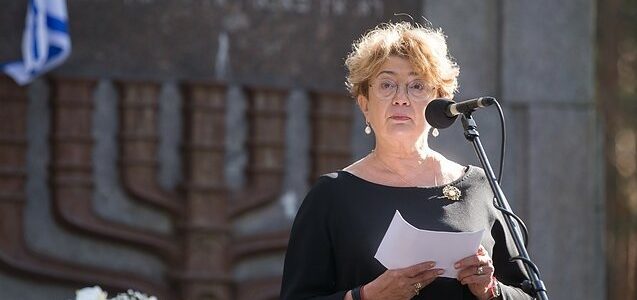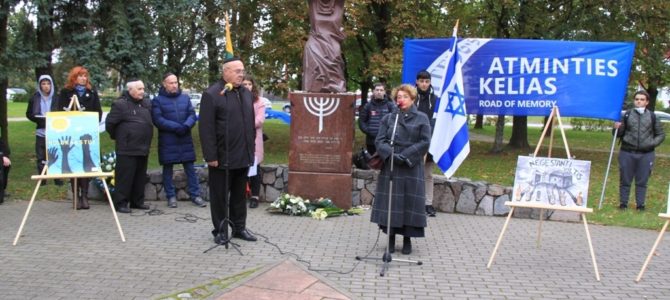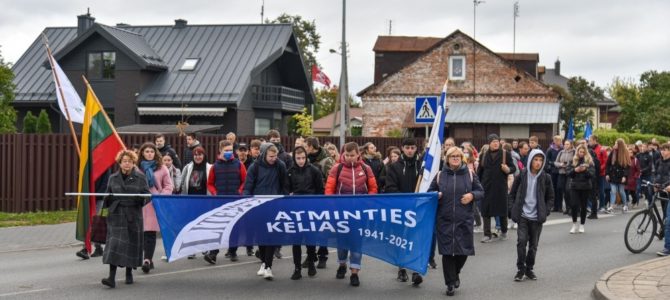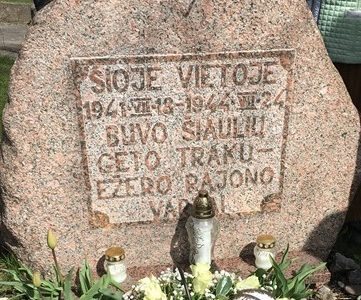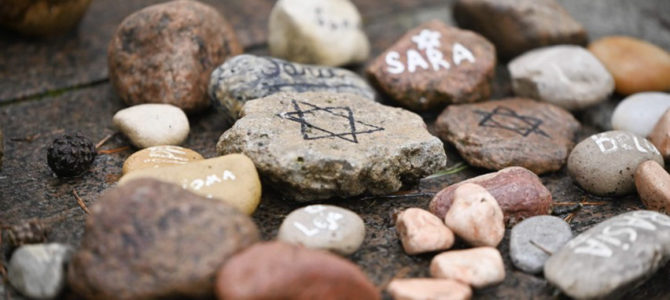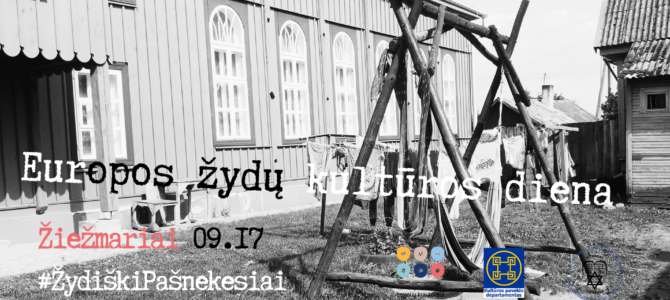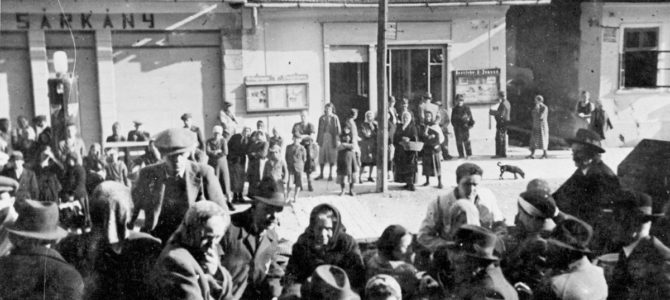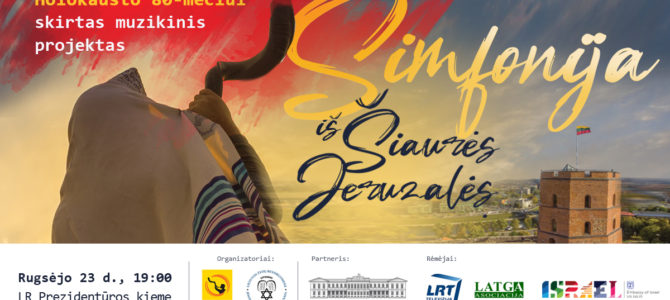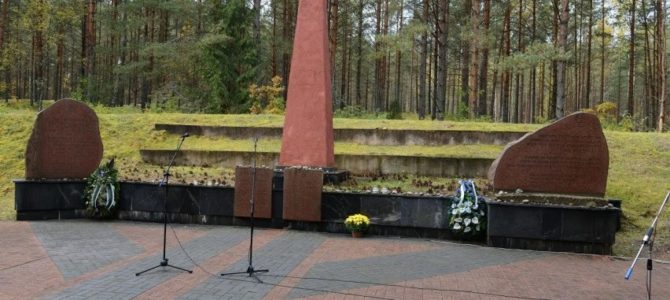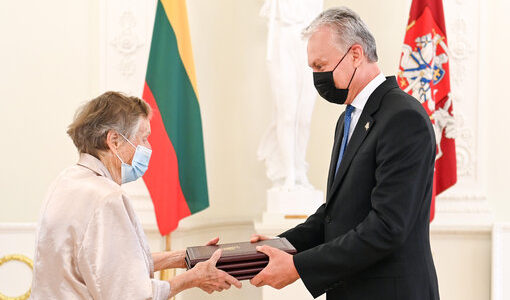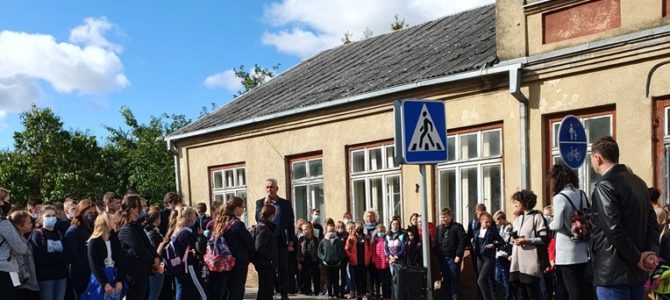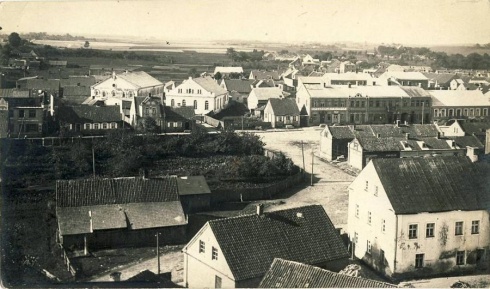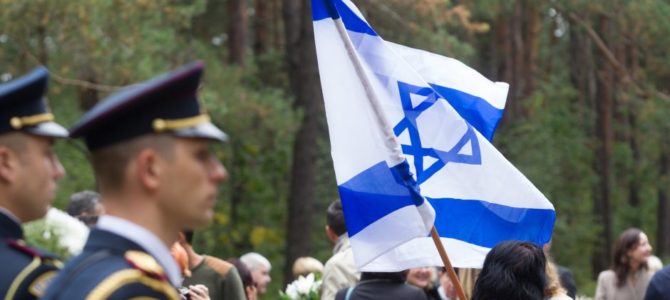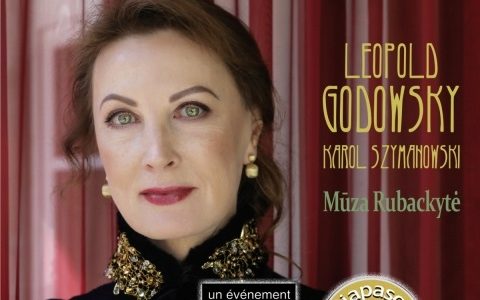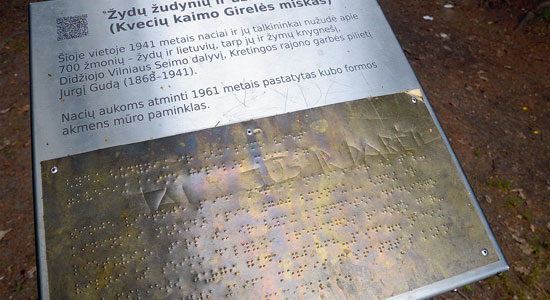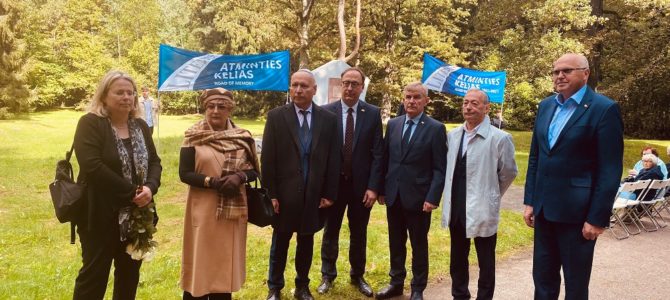Honored guests,
I stand before you in order to deliver a speech, but this place and this sad occasion calls for concentrating and remaining silent. The reflection, respect and humble silence which meets every thinking and feeling person in this place cannot be confused with the silence of apathy, ignorance and fear. All of us have kept silent too long. Too long. We have kept quiet about what happened, where it happened and why. It was kept quiet for most of those eight decades we count since the beginning of the Holocaust in Lithuania. Out of fear? Ignorance? Apathy?


